EU Diplomat Meeting Iranian Nuclear Negotiator In Qatar- Sources
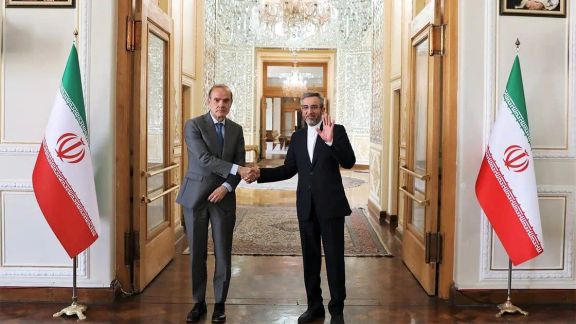
European Union foreign policy official Enrique Mora and Iran’s chief nuclear negotiator Ali Bagheri-Kani are holding meetings in Qatar, an Austria-based journalist reported.

European Union foreign policy official Enrique Mora and Iran’s chief nuclear negotiator Ali Bagheri-Kani are holding meetings in Qatar, an Austria-based journalist reported.
Stephanie Liechtenstein who has been following the Iran nuclear negotiations tweeted Tuesday that according to her sources Mora and Bagheri-Kani met Tuesday and will also meet on Wednesday.
She said that “talks are focused mainly on Iran’s military support for Russia’s war against Ukraine as well as on the nuclear file and detainees.”
Iran’s foreign minister Hossein Amir-Abdollahian arrived with a delegation possibly including Bagheri-Kani who is also deputy foreign minister in Doha Monday evening and held talks with Qatari officials on Tuesday, in what many believed to be related to issues pertaining to disputes with the United States.
“I am told the meeting is another attempt to help ease tensions,” Lichtenstein said, as the multilateral nuclear talks ended last September when Tehran put forth conditions unacceptable for Washington.
Since September, the US has demanded an end to Iran’s weapons supplies to Russia that has included hundreds of Kamikaze drones used against Ukrainian military and civilian targets.
In recent weeks there have been a flurry of reports about direct and indirect talks between Washington and Tehran on the nuclear issue, Americans held hostage in Iran and possibly Iran’s military cooperation with Russia. Some reports suggest that the US intends to reach a an unwritten interim nuclear deal, whereby it offers sanctions relief to Iran in exchange for a freeze on uranium enrichment at 60 percent.

Iran’s foreign minister Hossein Amir-Abdollahian met Qatar’s Emir in Doha on Tuesday in what may be related to reported indirect talks with the United States.
Amir-Abdollahian who arrived in Qatar Monday evening is accompanied by a delegation and will also visit Oman, another friendly regional country that has been a traditional mediator between Tehran and Washington.
Iranian government media had little to say about the foreign minister’s trip early on Tuesday, simply reporting on the meeting with the Emir, Sheikh Tamim bin Hamad Al Thani, and saying that discussing international, regional and bilateral issues were the purpose of his visit to Qatar.
In recent weeks, both Iran and the United States have indicated that they are in indirect contact, although several media reports since January have also described direct talks between the US special envoy for Iran, Rob Malley and Iran’s ambassador at the United Nations, Saeed Iravani.
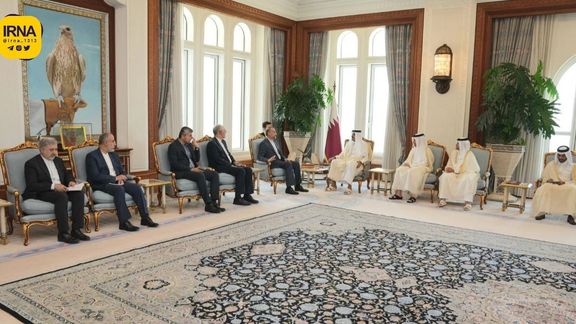
Israeli media and officials insist that already a limited agreement or a “mini-deal” has been worked out between Washington and Tehran aimed at stopping further Iranian uranium enrichment in exchange for US agreement to allow third countries to unfreeze Iranian funds and limited sanctions relief.
The US has denied these reports describing them as “inaccurate” or false, but earlier this month the Biden administration allowed Iraq to release more than $2.7 billion of money it owed to Iran for importing energy.
Although the administration insisted that the funds are earmarked for Iran to import food and medicines, the whole scheme is shrouded in mystery and it is not clear if Tehran would actually get its hands on cash US dollars, something Washington has tried to prevent since 2018 when it imposed economic sanctions.
Critics argue that any transfer of cash to the Iranian regime will bolster its ability to foment instability in the region. Some say that even financing its humanitarian needs will free up government funds for its military and proxy forces in the region.
The regime has been hosting leaders of Palestinian militant groups in Tehran and Supreme Leader Ali Khamenei held a meeting with them.

Ziyad al-Nakhalah, the leader of the Palestinian Islamic Jihad (PIJ), has been in Iran since last week, culminating in the arrival of Hamas leader Ismail Haniyeh in Tehran on Monday.
The groups, both designated terrorist outfits by the European Union, the US, the UK, Canada, and Israel, have been receiving financial support from the Islamic Republic, presumably for wreaking havoc in Israel, or what the regime calls “resistance.”
Amir-Abdollahian’s trip to Qatar and Oman followed the visit of Saudi foreign minister Prince Faisal bin Farhan to Tehran over the weekend after the two countries agreed to re-establish diplomatic ties in March after seven years of bitter animosity.
Although the détente with Saudi Arabia heralded an end to Iran’s isolation in the region, Riyadh has expectations from Tehran, the most important of which is security in the Persian Gulf region and an end to hostilities in Yemen.
"I would like to refer to the importance of cooperation between the two countries on regional security, especially the security of maritime navigation... and the importance of cooperation among all regional countries to ensure that it is free of weapons of mass destruction," Prince Faisal said during a press conference in Tehran.
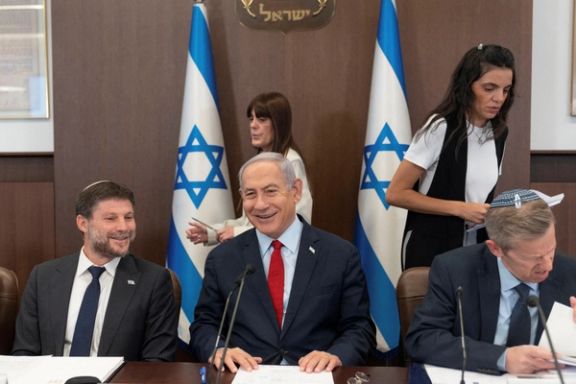
The Israeli premier says a nuclear agreement between Iran and the US will neither stop the regime from building a bomb nor stop Israel from attacking the Islamic Republic.
Prime Minister Benjamin Netanyahu made the remarks on Sunday in reaction to reports citing a Western official that the objective of the impending nuclear deal between Washington and Tehran is to stop Israel from attacking Iran.
The statement goes against all other reports in recent days that quoted other Israeli politicians such as Yuli Edelstein, the head of the Israeli parliament's Foreign Affairs and Defense Committee, who said Israel could accept such a deal if it includes rigorous supervision of Tehran's nuclear program.
“Our first mission is to stop Iran from going nuclear,” Netanyahu said at the opening of the weekly cabinet meeting. “We made clear to our American friends time after time, and I am doing it again today, that we oppose agreements, first of all to the original agreement called the JCPOA, which will just pave Iran’s way to the bomb and will pad it with hundreds of millions of dollars.”
“We also tell [the Americans] that more limited understandings, what’s called a ‘mini-deal,’ does not serve our purpose, in our opinion, and we oppose that, as well,” he said, claiming that his “principled opposition” to the JCPOA played a part in ensuring the US does not return to that deal.
Bibi added that “Israel will do whatever it needs on its own to defend itself from Iranian aggression, whether on the nuclear file or its terrorist proxies.”
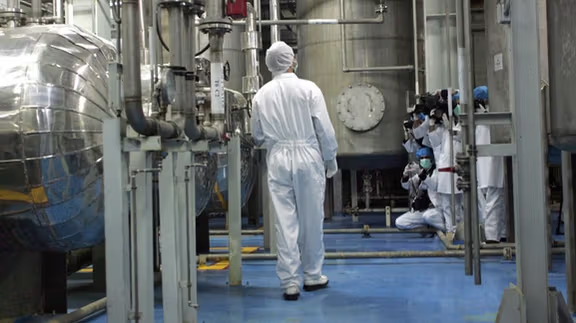
Israel could accept a deal between Iran and the United States if it includes rigorous supervision of Tehran's nuclear program, a senior lawmaker said Saturday.
According to Iranian and Western officials, the Biden administration is holding talks with Iran to sketch out steps that could include limiting the Iranian nuclear program.
These steps would be cast as an "understanding" rather than an agreement requiring review by the US Congress, such as the 2015 accord abandoned in 2018 by then-President Donald Trump.
The Biden administration has repeatedly denied media reports about a deal, acknowledging that contacts were made to clearly convey Washington’s positions. The latest denial came from Secretary of State Antony Blinken on Friday during a press conference.
“With regard to Iran, some of the reports that we’ve seen about an agreement on nuclear matters or, for that matter, on detainees are simply not accurate and not true,” Blinken said.
However, few are convinced that proposals about a deal are not on the table.
"It's not a wide-scope agreement, it's more like a small agreement, a memorandum of understanding, an M.O.U., and I think Israel can live with this if there is real supervision," Yuli Edelstein, head of the Israeli parliament's Foreign Affairs and Defence Committee, told Channel 12's Meet the Press.
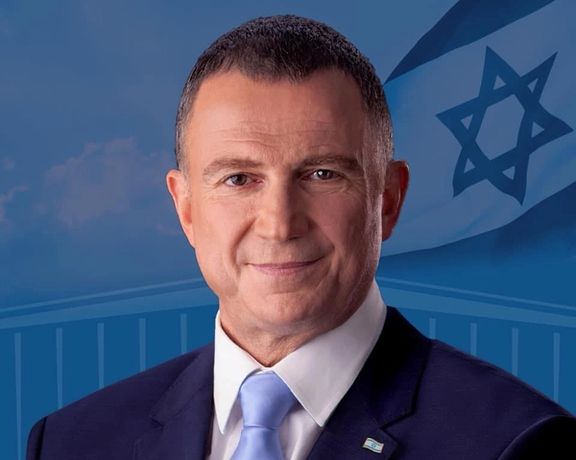
Prime Minister Benjamin Netanyahu's office declined comment on whether fellow Likud party member Edelstein's remarks reflected the views of the premier.
On Tuesday, before briefing the foreign affairs and defense committee, Netanyahu said in televised remarks: "Our position is clear. No agreement with Iran would obligate Israel, which will do everything required to defend itself.
"Our opposition to the deal - a return to the original (2015) deal - is working, I think."
"But there are still differences in outlook, and we do not hide these, regarding smaller agreements too. We have been stating our position clearly, both in closed and open sessions," Netanyahu said.
URANIUM ENRICHMENT
A core element of the possible understanding which remains unclear is the degree to which Iran would agree to rein in its uranium enrichment. Israeli officials in Netanyahu's circle have given potentially differing views on the issue this month.
Netanyahu's national security adviser, Tzachi Hanegbi, said Israel didn't see as much "damage" in any new understanding as there was in the 2015 deal, but it was "poised" for any Iranian shift to more than 60 percent fissile purity.
"That would already be a clear acknowledgment that the uranium enrichment is for weapons needs," Hanegbi said in an interview published on Friday in newspaper Israel Hayom, referring to the 90-percent fissile purity required for a bomb.
But last week, Strategic Affairs Minister Ron Dermer - who accompanied Hanegbi to Washington talks about Iran - voiced misgivings about any "freeze" of current enrichment levels.
"It means that you reconcile with a higher level of enrichment in Iran. And we thought that was a bad idea then, and we think it's a bad idea today," he told the AJC Global Forum in Tel Aviv.
However, Israeli Channel 12 news reported that US Secretary of Defense Lloyd Austin and Israeli Defense Minister Yoav Gallant met Thursday on the sidelines of NATO meeting in Brussels and reached understandings in the light of an emerging nuclear deal between Tehran and Washington.
Having failed to revive the 2015 deal, US President Joe Biden's administration hopes to restore some limits on Iran to keep it from getting a nuclear weapon that could threaten Israel and trigger a regional arms race.
Critics of a limited deal say that Iran would end up keeping the 60-percent enriched uranium, which means the status of a nuclear threshold state, while receiving financial rewards by US allowing other countries to release frozen funds and perhaps some sanctions relief.
Based on reporting by Reuters
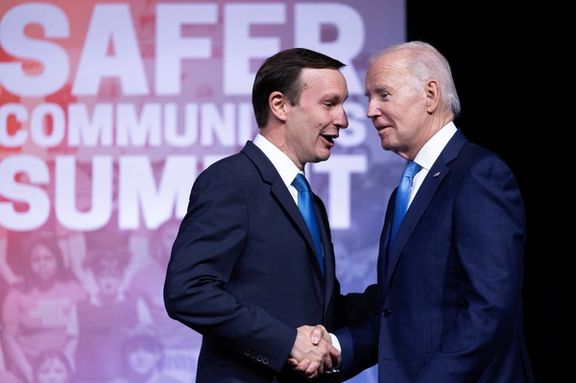
The Wall Street Editorial Board has slammed reported plans by the Biden administration to reach a limited nuclear deal with Iran in exchange for billions of dollars.
In an editorial on Friday, WSJ said the reported deal taking shape is not what President Joe Biden promised when he embarked on talks with the Islamic Republic in early 2021.
Biden had promised a “longer and stronger” agreement, the Journal said, “Now, in a remarkable retreat, the Biden Administration is pursuing an unwritten ‚understanding‘ with Iran to get to the brink of a nuclear breakout but go no further.“
The Biden administration has denied any deals with Iran, acknowledging that contacts were made to convey US demands. The latest denial came from Secretary of State Antony Blinken on Friday during a press conference.
“With regard to Iran, some of the reports that we’ve seen about an agreement on nuclear matters or, for that matter, on detainees are simply not accurate and not true,” Blinken said.
The WSJ says that in the deal taking shape Iran will keep all of its 60-percent enriched uranium, without clarity about international monitoring of its nuclear activities, while Tehran can break the unwritten “understanding” over any issue in the future.
The editorial also criticized a deal earlier this month that allows Iraq to release $2.7 billion of Iran’s frozen funds ostensibly for spending mainly on food imports.
"The Administration says Iran will spend the Iraqi funds only on food and medicine, as if money isn’t fungible. In reality the U.S. is freeing up billions of dollars that will finance the Islamic Revolutionary Guard Corps and its imperialism across the Middle East," the editorial said.
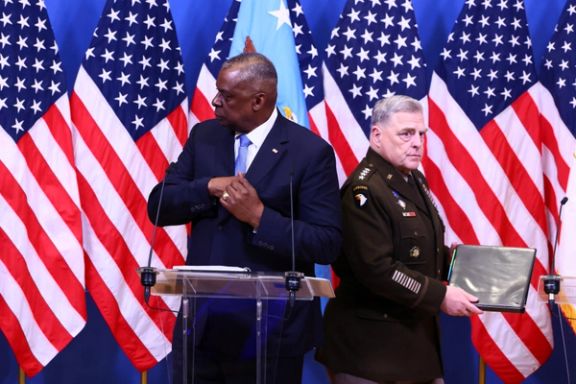
The United States has assured Israel it will keep its military edge and freedom to act against Iran, as it aims for an interim nuclear deal, a report said Friday.
Israeli Channel 12 news reported that US Secretary of Defense Lloyd Austin and Israeli Defense Minister Yoav Gallant met Thursday on the sidelines of NATO meeting in Brussels and reached understandings in the light of an emerging nuclear deal between Tehran and Washington.
In recent weeks, multiple news outlets have reported on direct and indirect US Iranian talks on reducing tensions, a possible interim unwritten agreement to slow down Tehran’s nuclear program and release of Americans held in Iran.
The Biden administration has repeatedly denied any deals with Iran, acknowledging that contacts were made to make clear what US demands were. The latest denial came from Secretary of State Antony Blinken on Friday during a press conference.
“With regard to Iran, some of the reports that we’ve seen about an agreement on nuclear matters or, for that matter, on detainees are simply not accurate and not true,” Blinken said.
Channel 12 news also quoted senior security officials as saying that cooperation with the United States has increased on the issue of Iran, involving the Israeli Defense forces in joint efforts.
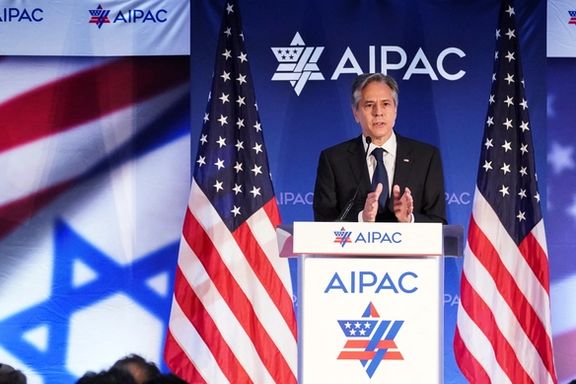
Washington has assured Jerusalem that it will maintain its military edge over Iran, and Austin also made clear to Gallant that in addition to close cooperation over Iran, Israel will maintain a free hand to act against adversaries.
Israel has made clear that if it concludes Iran is close to obtaining nuclear weapons, it will not limit itself by any agreements the United States and others might have reached with Tehran and will take military action to stop what it sees as an existential threat.
Israeli officials and media indicate that some sort of a deal between Washington and Tehran is moving forward and that Israel will accept the general parameters of a possible agreement and will not try to foil it.
Israel’s ambassador in the US Michael Herzog was quoted as saying, “Diplomacy isn’t necessarily a bad thing,” during an event hosted by the Democratic Majority For Israel, according to Haaretz.
“As far as we’re concerned, diplomacy in and of itself, and such understandings, are not necessarily bad to the extent that they can help deescalate a situation,” Herzog said.
Iran has acknowledged diplomatic efforts behind the scenes but has been cautious in heralding any imminent deals.
Nour News, affiliated with the national security council on Friday said the White House is showing "positive signals of changing its approach toward Iran in the past few months".
Regarding reports about a possible nuclear deal, the website did not express optimism, but its claim of positive signals was an indication of some satisfaction at the security council.
‘Reformist’ media in Tehran, critical of the ruling hardliners, continued to argue for flexibility and a deal that would lift crippling US sanctions imposed since 2018 when former President Donald Trump pulled of the 2015 JCPOA accord.
Aftab News close to former President Hassan Rouhani in an article on Saturday recounted the “trillions of dollars” in damages to Iran’s economy resulting from its nuclear dispute with the West over a period of two decades.